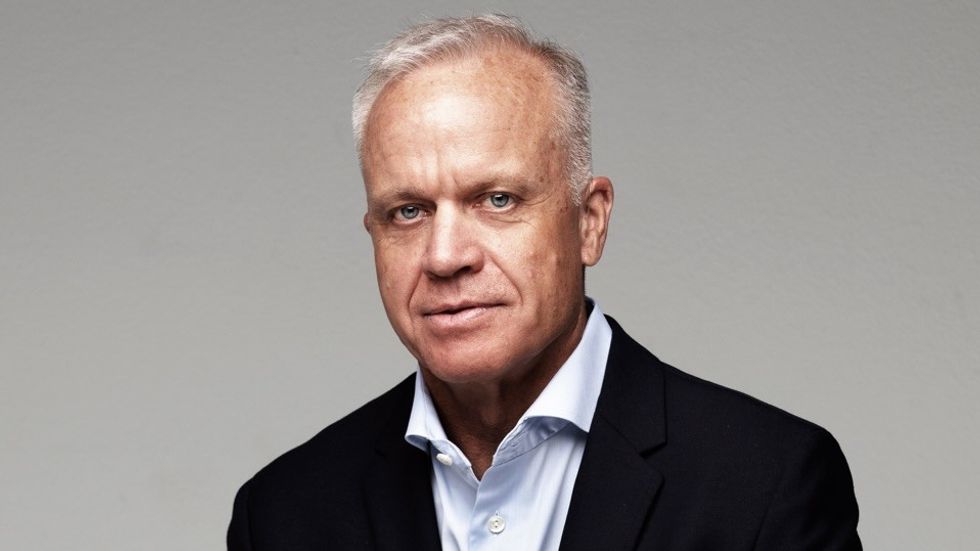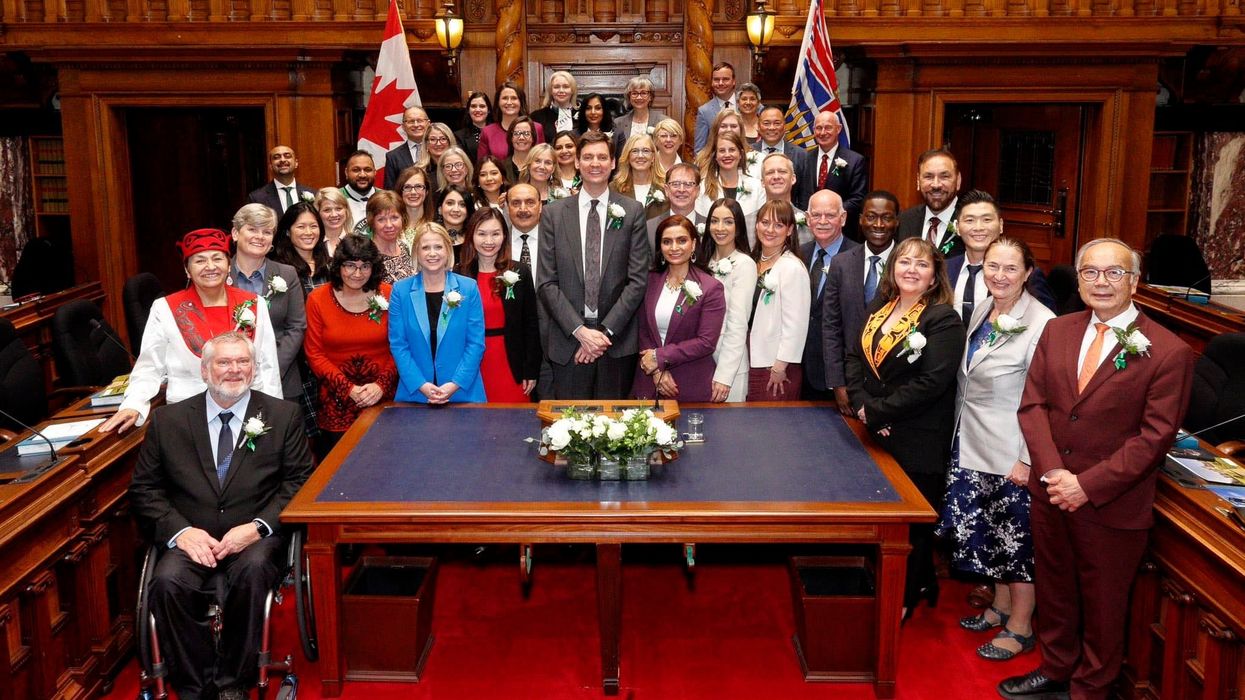“This new age autocrat is steadily undermining the very foundation of our civil society — individual freedom, property rights and the rule of law,” wrote Eric Carlson, the founder of one of the province’s biggest development companies, Anthem Properties, in a private fundraising letter that got re-purposed as an op-ed days before the vote on October 19.
“There is no end to his view that he and his advisers know how we should behave, and increasingly, through rules, regulations, laws and taxes, that they should modify our behaviour with respect to virtually everything,” Carlson wrote.
Now Carlson and many others in the development community are faced with the reality that the NDP scraped back into power and will be continuing with its dozens of new initiatives that are part of an aggressive campaign to tackle the province’s dire housing situation. Eby has re-appointed Ravi Kahlon as the Housing Minister, meaning that all the very ambitious changes he launched are likely to continue full speed ahead.
But there’s a decidedly mixed reaction within that development community to a government that did a lot of things they liked – mandated that cities allow for much denser housing, especially around transit; removed requirements for public hearings on projects that comply with a city’s official community plan; demanded that cities set housing targets and meet them – and a lot that they didn’t.

In the Bad for Development list: big new protections for renters that make rental projects more problematic; significant changes to the BC building code in the coming years that will add costs as builders have to meet new requirements for energy-efficiency, seismic protection, and adaptability of units for people with disabilities; and little effort to restrain cities and regional districts from imposing massive new development fees as they look for ways to pay for new sewer, water, and community services.
Carlson is still dismayed at what he sees as a government inexorably wedded to the idea of controlling the housing market through a dozen kind of restrictive policies because its NDP members are fundamentally anti-business. He thinks they haven’t really learned any lessons except that maybe they should “be a bit more gentle, go slower” for the next while.
“The Premier has a very activist personality” and that’s not really going to change his belief that government has to step in and manage development in a dozen different ways, he said.
But others are more phlegmatic about the prospect of at least four more years of the NDP at the helm.
“I think the continuity is something I welcome,” said Mike Mackay, President of Strand Development, which has built or is building hundreds of rental apartments in Vancouver and another 1,200 condos in Coquitlam, as well as developing industrial property in Vancouver and Langford on Vancouver Island. “And this government has acknowledged finally that supply is a massive part of the solution and their policies reflect that. That was a seismic shift. I applaud the government for its ability to change its approach.”
He also said there’s been more conversation and respectful negotiation between the Province and the development community recently than he’s ever experienced, something that others echoed.
“We have good dialogue as an industry right now.”

But he and many more in the sector also said there need to be some changes if the province truly wants to see a housing boom, something that is currently being slowed to a trickle by builders’ struggles with the high cost of borrowing money, of labour, of materials, of ever-increasing development fees, and the still lengthy process of getting municipal approvals for projects.
If there’s one top they are united on, it’s the need to find other ways for cities to pay for infrastructure like sewer and water lines besides heaping fees onto new housing.
“What I hope to see is on this question of infrastructure,” said Duncan Wlodarczak, Chief of Staff for Onni Group. “Someone has to pay for this. I would like to see [the NDP government] helping everyone come to the table for solutions. We all know we need more housing here but we also need the infrastructure. That’s really the big question for the region.”

The province’s Urban Development Institute, which represents the development community, has a wish list that includes that item, along with several other potential changes that individual developers are focused on.
The UDI five-point list:
- A new model for paying for infrastructure that doesn’t just load fees onto new housing. They say adopt a utility-services corporation for at least water and sewer where cities and districts can amortize infrastructure costs across all customers.
- Have local governments collect development charges and fees only when buildings are finished, instead of right at the start.
- Push cities to do rigorous studies on strategies like inclusionary zoning and density bonusing to make sure they’re achieving housing goals.
- Change the pre-sale period for marketing condos from 12 months to 18 months.
- Slow down on all the changes to the building code that are increasing costs at a steady clip.
That last one is something that almost all developers mention these days, as they look at having to re-design buildings and add costs to meet the upcoming building-code changes.
“We need a bit of a moratorium on all the new regulations and new fees,” said Strand's Mackay.
Beau Jarvis, CEO of Wesgroup Properties, says the same. “The constant change in the building code is a massive issue. We’ve been calling for a policy moratorium for a couple of years now. Let us come up for air.”
(Not everyone feels that way. Wlodarczak said, rather than a moratorium, a commitment from both provincial and municipal governments that changes won’t be applied to projects already in stream would be more helpful.)
But Jarvis and other builders also have additions to the wish list.
At Wesgroup, which has nine condo projects and 14 rental projects listed on its website, the NDP approach to rental support and regulation has resulted in policies that cancel each other out, he said.
“Their policies on getting things built, they’re actually quite good,” said Jarvis. But on the operational side, the NDP put in so many new rules aimed at protecting tenants and capping rents that it’s made it increasingly challenging to see how to run rental properties without a loss.
“They brought in 18 policies that favour the tenant, none that favour the landlord,” he said.

Wesgroup has 2,000 rentals in its portfolio, where it saw the NDP allow no rental increase in the first year of COVID and then increases lower than the rate of inflation since then.
“We’ve seen an 8.8% increase in revenue but our costs have gone up 70% in that time,” said Jarvis. Most of that is increased property taxes and insurance costs.
Like every developer, including Carlson, the NDP policy he liked the most was the Province’s legislation to mandate that cities allow significant amounts of density near major transit hubs.
“It helps immensely.”
But he was more dubious about the NDP’s other piece of legislation that requires all cities over a population of 5,000 to allow multiplexes on any land zoned single-family residential.
It’s a policy that a lot of city mayors and planning directors have objected to, saying that it spreads out new development so haphazardly across the city’s landscape that it will be a struggle to figure out how to upgrade sewer and water lines efficiently to service them.
Jarvis said he feels like that piece was a mistake, perhaps more the product of a “class warfare” mindset on the part of the NDP against the well-off single-family neighbourhoods than a useful housing-supply strategy.
Certainly, that policy, along with others aimed at pushing cities into doing more for housing, created a fractious relationship between the Province and several municipalities that is going to need repairing, say some.
“There still has not been meaningful engagement with the municipalities to solve some of the real issues,” said Tegan Smith, a development consultant who works with several local companies to help get projects through the often tortuous municipal-approval process. “There was a lot of good stuff that came out but also frustration with top-down legislation without any humility. It damaged the relationship with municipalities.”
Significantly, Eby has added to Ravi Kahlon’s portfolio by including municipalities as well as housing.

Smith agreed that the multiplexes, which she sees gaining popularity as they prove to be economically feasible, are good but the problem of how you provide all of them with the water and sewer infrastructure needed still has to be addressed – as does the whole problem of infrastructure.
“It’s the real crisis in Canada overall. The reality is that growth can no longer pay for growth.”
Like the UDI, she hears from her clients that there needs to be a new financial model for paying for big infrastructure improvements besides just loading massive fees onto new housing.
“Development fees are just code for infrastructure costs and it’s killing our projects,” said Smith.
Unlike others, Smith also said the Province’s requirement for cities to have very dense housing allowed near transit nodes still needs some work.
The Province’s planners, through Bill 47, appear to have simply drawn circles with a protractor around transit nodes to establish where that density should go. But sometimes it just doesn’t make sense – the circle includes land cut off by a waterway or a rail line or something else that means it’s not actually a site that will give future residents quick access to transit.





















